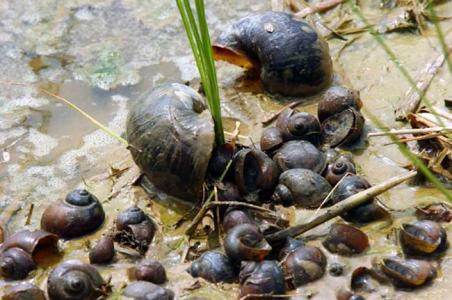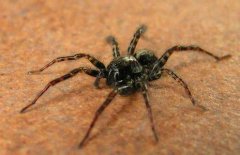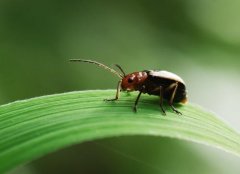Harm of Oncomelania hupensis: is Oncomelania hupensis a pest? How to destroy the eggs of Fushu snail?
The snail often appears in the rice field, but the snail is a disease and insect, it can harm the growth of rice, so how do you control it? If you want to know more scientific prevention and treatment methods, let's take a look at them.
Due to the rapid reproduction rate, Oncomelania hupensis has few natural enemies in Taiwan, and significant agricultural losses have occurred in Japan and China. However, a few days ago, Chen Zhenliu, a national Longtan agricultural and food processing teacher, found that suffocating Fushou snail eggs with vegetable oil emulsion proved to be effective by field experiments. Chen Zhenliu said that this culling method will not cause secondary pollution to the environment and has been approved after applying for a patent with the Ministry of Economic Affairs, hoping to help farmers cull Fushou snail pests.

Thin film to isolate the dead eggs in the air
In the nearly 30 years since the invasion of Taiwan, pink eggs and dark-brown snails can be seen everywhere in the fields in Taiwan. Chen Zhenliu said that because of the super fecundity of Oncomelania hupensis, chemical pesticides are almost always used to kill Oncomelania hupensis. Although it can effectively kill Oncomelania hupensis, chemical residues not only cause environmental pollution, stifle native fish, frogs and destroy the ecological balance, but also cause great harm to the human body.
Will not cause secondary pollution to the environment
Chen Zhenliu said that two years ago, she used vegetable oil to emulsify and prepare a harmless emulsion. When she led her students to spray on the eggs of Fushu snail in the field, she would form a thin film that would isolate the air so that the eggs could not hatch. After repeated experiments in the field, the results were really good.
She said that suffocating snail eggs is a physical prevention method, not pesticide control, and vegetable oil emulsions are already edible and harmless to the human body and the environment. In addition, she has also studied the prevention and control of snails with fruit peel preparations, but it is still in the experimental stage.
Patent approval for mass production for the benefit of farmers
Chen Zhenliu said that in July the year before last, she applied for a patent from the Ministry of Economic Affairs. A few days ago, she approved the patent. After receiving the patent approval document, she discussed with the headmaster Zhang Yifang. Zhang Yifang suggested that she could cooperate with large private factories to produce a large number of pests to help farmers cull the snail. Although there are unlimited business opportunities, she thinks that she can help farmers without harming the environment and the human body. This is the ultimate goal of her research and development. The invention will be made public and shared with farmers across the country today.
Ye Ying, deputy director of the Prevention and Inspection Bureau of the Council of Agriculture, said that at present, more chemicals are used to control Oncomelania hupensis. In recent years, farmers have also used biological control to raise fish or ducks in paddy fields to eat Fushu snails. As for the method of suffocating Fushu snail eggs with vegetable oil emulsion, she hasn't heard of it yet.
In the past, the pesticide "tin triphenylacetate" was used for prevention and control, but because it was harmful to the environment, it was banned in 1997 and changed to "Nike snail" and "polyacetaldehyde". At that time, farmers were not used to it, which once again caused harm to longevity snails, but now there is no such problem. The Prevention and Inspection Bureau holds a seminar every year to teach farmers how to use it correctly.
- Prev

How to control mites scientifically? What are the control methods of mite pests?
What do you know about the application of predatory mites in agricultural pests? What are the characteristics of predatory mites in agricultural pests? If you want to know, let's take a look. Biological control emphasizes the use of predatory natural enemies to control pests.
- Next

Yellow-striped leaf flea: ecology and control of yellow-striped leaf flea, harm of yellow-striped leaf flea
Yellow striped leaf flea is an ancient pest on cruciferous vegetables. Farmers are no stranger to it, but they do not understand its ecology and life history metamorphosis, because its adults live on the aboveground leaves, eggs, larvae and pupae live in the soil. Ordinary farmers only control adults.
Related
- A one-day flower show brings 130 million yuan in orders! Nanhai, this Phalaenopsis exhibition is amazing
- What do the flower language and meaning of Lutheran tree mean? Precautions for planting Lutheran tree
- Encounter Chaoshan Kongfu tea, not without this cup of Phoenix single clump
- The durian market in Vietnam and Thailand is flooded. The price of imported durian has plummeted by 30-40% in a month.
- Shanghai solved the problem of local vegetable supply by planting 80,000 mu of green leafy vegetables.
- Wageningen University has become the best agricultural university in the world for the seventh time in a row.
- The strongest export season of South African grapes is full of challenges, with exports to Russia falling sharply by 21%.
- Sri Lanka is on the verge of bankruptcy, "Tea for debt" Organic Agriculture Revolution aggravates the Food crisis?
- Turning waste into earthworm manure and worm manure into organic fertilizer-A new choice for auxiliary farming
- Organic rice growers shoulder the responsibility of nurturing agricultural talents! Yinchuan Sustainable Farm with Organic Life Camp

